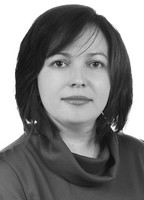Psycho-physiological and cognitive abilities rating versus individual motor activity levels
Фотографии:
ˑ:
Teoriya i praktika fizicheskoy kultury №12 2016, pp. 85-86
UDC 796.01:612
PhD A.V. Kabachkova1
Postgraduate G.S. Lalaeva1
Postgraduate A.N. Zakharova1
Professor, Dr.Med. L.V. Kapilevich1, 2
1National Research Tomsk State University, Tomsk
2National Research Tomsk Polytechnic University, Tomsk
e-mail: kapil@yandex.ru
The study was intended to rate the psycho-physiological and cognitive abilities versus the individual motor activity levels. Subject to the study were 17-20 years-old males (n=50) split up into 4 similar groups that were different only in the motor activity levels. The mechanisms behind the differences in the psycho-physiological and cognitive abilities of differently active people appear to correlate with their nervous system organization dominated by the cerebral cortex activity specifics that, in their turn, are largely driven by the repeated habitual patterns of motor activity. These patterns, in their turn, are apparently determined by the training process specifics and manifest themselves in adaptive, compensatory, psychological and rehabilitative qualities and abilities of the individuals rated with different motor activity levels. The study data and analysis demonstrated the motor activity intensity and nature causing a modulating effect on the psycho-physiological and cognitive ability rates. Growing motor activity levels generally will scale down the individual anxiety levels, neurosis levels and exposure to the latter. In addition, cyclic physical workloads will help increase the neural process lability rates as verified by the performance rates (with initial pace growth) in the tapping tests and attention focusing tests.
Keywords: motor activity, physical workload, cognitive performance, attention, nervous system type.
References
- Apanasenko G.L. Meditsinskaya valeologiya (Medical valueology) / G.L. Apanasenko, L.A. Popova. – Rostov-on/D.: Feniks, 2000. – 248 p.
- Aseev D.N. Funktsional'nye sostoyaniya v strukture sportivnoy deyatel'nosti (Functional status in the structure of sports activities) / D.N. Aseev, V.L. Barkova // Uch. zapiski RGSU. – 2011. – № 6. – P. 268-272.
- Kabachkova A.V. Dvigatel'naya aktivnost' studencheskoy molodezhi (Students' motor activity) / A.V. Kabachkova, V.V. Fomchenko, J.S. Frolova // Vestnik Tomskogo gosudarstvennogo universiteta (Bulletin of Tomsk State University). – 2015. – № 392. – P. 175-178.
- Strel'nikova J.Yu. Vremennye kharakteristiki poznavatel'nykh protsessov kak faktor povysheniya rezul'tativnosti obucheniya v vysshey shkole (Temporal characteristics of cognitive processes as a factor of academic progress in higher education) / J.Yu. Strel'nikova // Vestnik Sankt-Peterburgskogo universiteta MVD Rossii (Bulletin of St. Petersburg University of MIA of Russia). – 2010. – № 1 – P. 228–235.
- Balanev D.Yu., Kapilevich L.V., Shil'ko V.G. Perspectives of application of motor activity monitoring techniques in sport // Teoriya i Praktika Fizicheskoy Kultury. 2015
- Kapilevich L.V. Physiological mechanisms of motor coordination in athletes in unsupported position // Teoriya i Praktika Fizicheskoy Kultury // 2012. - Issue 7. – P. 45-48.
- Koshelskaja E.V., Kapilevich L.V., Bajenov V.N., Andreev V.I., Buravel, O.I. Physiological and biomechanical characteristics of the kick and goal techniques of football players // Bulletin of Experimental Biology and Medicine. 2012. V. 153, I. 2, P.266-268.
- Psychophysiological features of cyclic and endurance athletes // Lalaeva G.S., Zakharova A.N., Kabachkova A.V., Mironov A.A., Kapilevich L.V. // Teoriya i Praktika Fizicheskoy Kultury. 2015, Issue 11, Р. 73-75.
Received 03.10.2016 г.




 Журнал "THEORY AND PRACTICE
Журнал "THEORY AND PRACTICE